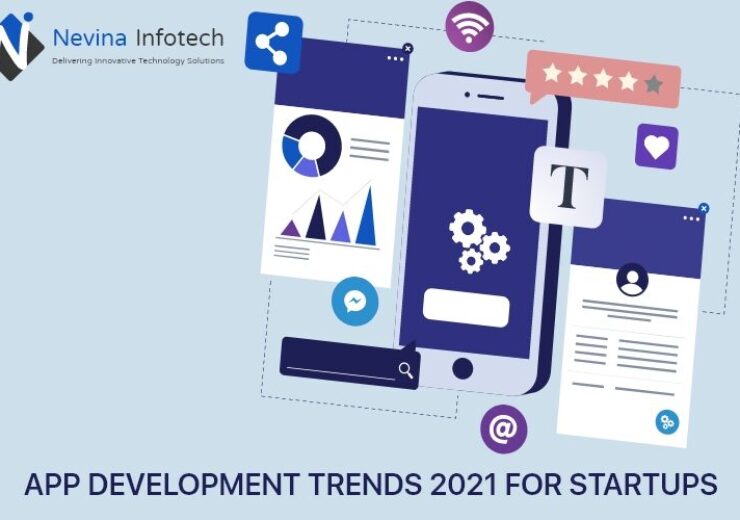How Does DevOps Benefit Mobile App Development?

Mobile app development is equipped with either development or testing issues. These are not once-in-a-while types. Challenges like these are way too common during the development process. What matters is the approach to how these can be resolved. We all know traditional methods were not convenient for quickly providing an issue-free mobile app.
Considering this failure, DevOps emerged as a new and much more improved methodology. This practice combines the development and operations teams to work together and provide a much faster working and as-intended output. DevOps offers countless benefits, from more rapid time to market to better collaboration between teams.
With that many benefits, one thing is always miss-sighted: the expertise or the required need to implement this methodology. Opting for DevOps consulting services to better understand your project is a strategic move to mobile app development. You will get precise and more important insights with them covering the WHY aspect.
What are the Benefits of DevOps in Mobile Application Development?
———————————-
The traditional approach to mobile app development was not sufficient to cover the needs of the present world. Here, DevOps emerged as a problem solver, providing various advantages to a business in mobile application development. Let’s understand the benefits and how it helps:
1. Quick Delivery
In mobile application development, the traditional approach was not entirely laggy in delivering quality projects. In fact, quality projects were deliverable using that approach. However, the limitation was the excessive time due to the silos between different operating and development teams. Hence, the approach is not suited for the present day.
The introduction of DevOps has been a boon for businesses, providing an essential benefit in speeding up the app development time. This approach automates the development, testing, and deployment process, making delivery quicker and more efficient. With this agility in place, businesses can meet the ever-evolving needs of businesses.
2. Better Product Quality
Quality matters the most in every aspect, whether product development or service selection. No matter how good a product is at launch, after a few weeks, its uniqueness degrades with the introduction of newer products in the market. DevOps helps outshine product quality through continuous integration/ continuous delivery (CI/CD) pipelines. This ensures code changes are automatically tested and validated against various devices and operating systems. Thus improving the quality of a mobile application with no to minimum bugs.
3. Enhanced Collaboration
Traditional models empower a siloed approach, which makes it difficult to maintain better collaboration among different teams. The siloed approach to the problem and the sequential structure for solving a particular development stage were also among the major issues. The introduction of DevOps served as an advantage in improving the silos between operations and development teams. This results in shared goals and metrics, making them more efficient and enhanced. It encourages better collaboration among teams.
4. Much Better Security
Security plays a pivotal role in mobile application development. Information theft, viruses, malware attacks, and more are becoming so common today that an everyday user has to think twice before sharing any information. The reason behind these attacks might be due to the implementation of outdated security measures used in the traditional approach.
DevOps or DevScops has helped to improve this by implementing the present-day apt methods. CI/CD pipelines play the quintessential role in attaining this. With mobile DevScops, the continuous cycle to improve the quality of apps through automated vulnerability scanning and penetration testing is conducted to prepare your project to overcome security challenges.
Mobile DevOps Vital Concepts
———————————-
You understand the benefits of DevOps in mobile development, so it is wise to check on the key concepts of this methodology. The six Cs of this methodology are vital in making the development lifecycle more efficient and robust. So, what are these? These are:
1. Continuous Planning
This process involves continuously refining the mobile app development roadmap to ensure a more responsive development process that meets present-day needs.
2. Continuous Integration
Mobile app developers continuously modify their code or merge the changes into a central repository to meet the objectives of triggering automated bidding.
3. Continuous Testing
This process plays a vital role in ensuring that the application’s functionality and performance remain intact with the current world needs.
4. Continuous Monitoring
It is about tracking the solution’s user experience, performance, and scalability and monitoring the areas where it crashes to ensure optimum reliability.
5. Continuous Delivery
It is all about automating the delivery process to prepare releases for deployment.
6. Continuous Deployment
Lastly, this process streamlines making live changes with less human intervention.
Conclusion
This blog covers the benefits of DevOps in mobile application development. This improved and modern-day methodology serves as a backbone for releasing quick mobile app solutions with top-tier security measures. However, completing this process requires expertise and experience, as the six vital concepts play a prominent role. Working with a skilled DevOps automation services company is essential. The right team will help you make the most of this process.




